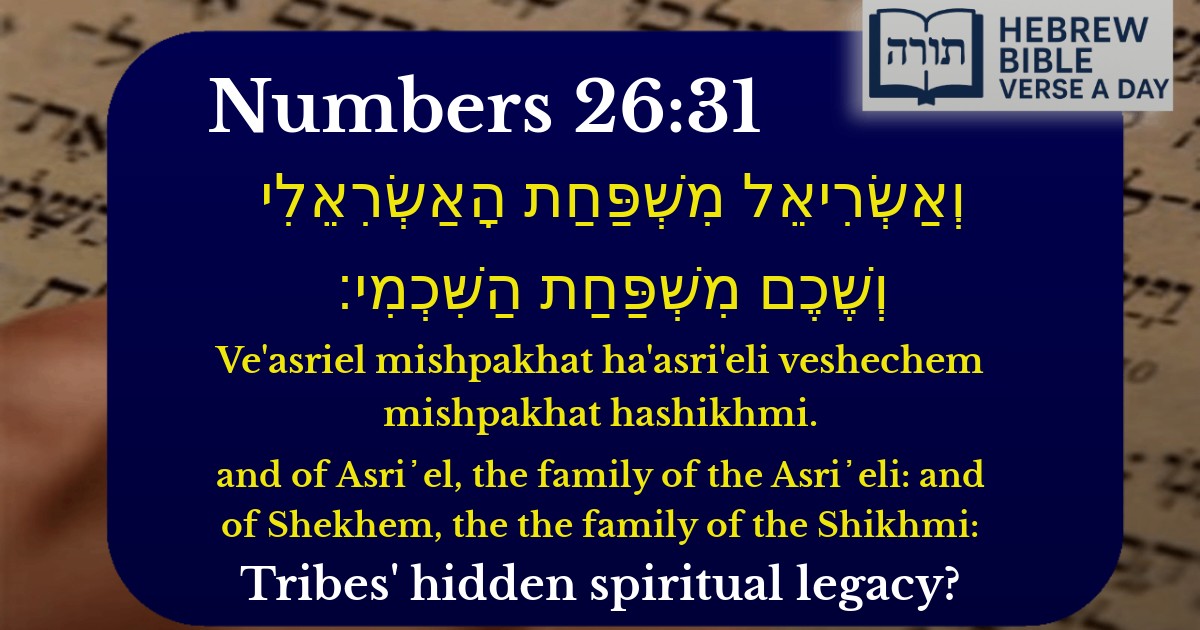Join Our Newsletter To Be Informed When New Videos Are Posted
Join the thousands of fellow Studends who rely on our videos to learn how to read the bible in Hebrew for free!
Hebrew Text
וְאַשְׂרִיאֵל מִשְׁפַּחַת הָאַשְׂרִאֵלִי וְשֶׁכֶם מִשְׁפַּחַת הַשִּׁכְמִי׃
English Translation
and of Asri᾽el, the family of the Asri᾽eli: and of Shekhem, the the family of the Shikhmi:
Transliteration
Ve'asriel mishpakhat ha'asri'eli veshechem mishpakhat hashikhmi.
Hebrew Leining Text
וְאַ֨שְׂרִיאֵ֔ל מִשְׁפַּ֖חַת הָאַשְׂרִֽאֵלִ֑י וְשֶׁ֕כֶם מִשְׁפַּ֖חַת הַשִּׁכְמִֽי׃
Parasha Commentary
📚 Talmud Citations
This verse is not quoted in the Talmud.


Context in Sefer Bamidbar
The verse (Bamidbar 26:31) appears in the census of Bnei Yisrael taken in the plains of Moav before entering Eretz Yisrael. It lists the families descended from Menashe, son of Yosef, specifically mentioning the families of Asri'el and Shekhem.
The Family of Asri'el
Rashi (Bamidbar 26:31) explains that Asri'el was a son of Menashe, as stated in Divrei Hayamim I 7:14. The name Asri'el is interpreted by the Radak (Divrei Hayamim I 7:14) as meaning "G-d is my help" (עזר-אל). The Sifrei (Bamidbar 133) notes that this family was counted separately due to their distinct lineage.
The Family of Shekhem
Rashi (Bamidbar 26:31) identifies Shekhem as another son of Menashe. The name Shekhem may relate to the city of Shekhem in Eretz Yisrael, suggesting a connection to this territory. The Talmud (Bava Batra 118b) discusses how the descendants of Menashe inherited land in both Transjordan and west of the Jordan, with Shekhem's portion being particularly significant.
Inheritance and Tribal Allotments
Lessons from the Names
The Kli Yakar (Bamidbar 26:31) draws attention to the meanings of these names: Asri'el ("G-d is my help") teaches reliance on Hashem, while Shekhem (literally "shoulder") symbolizes bearing the yoke of Torah. This reflects the dual spiritual and physical inheritance of Eretz Yisrael.